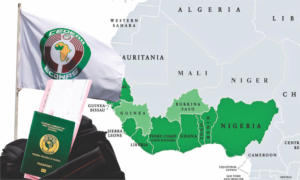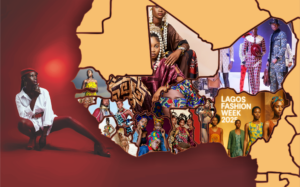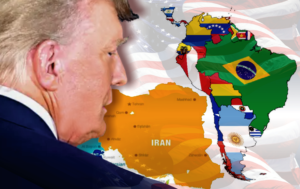Ghana: Battling Galamsey at the Grassroots with a Fight to Reclaim Rivers and Futures
The Ankobra River once shimmered with life, clear waters feeding farms, families and a narrative folklore in Ghana’s Western North Region. Today, it runs grey and heavy with silt and chemicals, a symbol of both desperation and defiance in the country’s escalating battle against illegal gold mining, known locally as galamsey.
Ghana, Africa’s second-largest gold producer, faces a troubling paradox: the same metal that fuels its economy is destroying its environment and livelihoods. A weakened economy, high unemployment and dwindling agricultural returns have pushed thousands, especially youth, into illegal mining as a last resort. Up till now, the human and ecological costs are mounting and in communities like Jema, ordinary citizens have begun to push back.
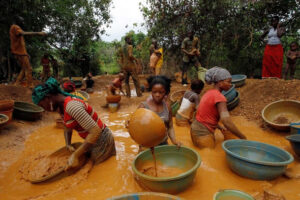
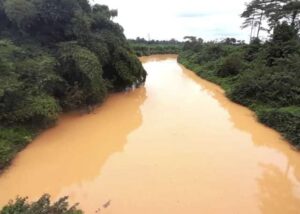
Jema, a town of about 15,000 people, banned all forms of mining in 2015. Guided by customary laws and the moral authority of their chiefs, the people of Jema took a collective stand. “Jema, no galamsey” – they chant a slogan that has become both a rallying cry and a declaration of identity.
The Jema Anti-Galamsey Advocacy (JAGA) task force, made up of 14 volunteers, patrol rivers and forests, watching out for telltale signs of mining, discolored water, sudden clearings and the humming of hidden machinery. Founded with the help of Catholic priest Father Joseph Kwame Blay, the group has become a symbol of community-led resistance in Ghana. The JAGA president Patrick Fome said – “People are threatening our lives. They think we are depriving them of their work. But if we lose our rivers, our children lose their future.”
The fight against galamsey is as much about family survival as it is about gold. Many miners are fathers trying to feed their children, young men disillusioned by joblessness, and women supporting households with small gains from the trade. With nearly 39% of Ghanaian youth unemployed, the lure of quick money is strong. Even when it poisons the water they drink.
Communities like Jema are thus torn between two moral imperatives: protecting the land for future generations or surviving the present. The struggle has divided families, strained friendships, and in some cases, turned neighbor against neighbor.
In Ghanaian tradition, rivers are sacred and often personified as ancestral spirits or guardians of fertility. Their pollution represents an environmental loss and also cultural erosion. “When a river dies, a people’s story dies with it” – says Father Blay.
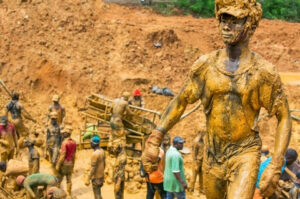
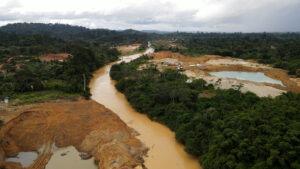
The Ankobra’s decline mirrors a wider national crisis. The Ministry of Lands and Natural Resources reports that illegal miners operate in 44 of Ghana’s 288 forest reserves. The nonprofit Swissaid estimates that the country lost over $11 billion to gold smuggling in the past five years alone. A staggering economic and moral loss.
The government has promised action. President John Mahama, who took office in January, launched a national task force to combat illegal mining. Though he has resisted calls for a state of emergency. Critics say enforcement alone will not solve the problem. Without job creation, many warn, new miners will always replace those arrested.
The issue has become deeply political, testing the government’s credibility and exposing tensions between economic growth and environmental stewardship. Nationwide protests last year saw thousands demanding tougher measures, while others pleaded for mercy, arguing that galamsey puts food on their tables.
Still, in Jema there is cautious hope. The community’s waters run clearer now, and young people are beginning to take pride in protecting their environment. Local leaders are urging the government to support alternative livelihoods like sustainable farming, small-scale industries, and youth training programs, to make illegal mining less appealing.
The fight against galamsey is to uphold the dignity of families, for culture; and even for the right to drink from their own river without fear. In Jema that fight continues with one patrol, one prayer and one clean drop of water at a time.


